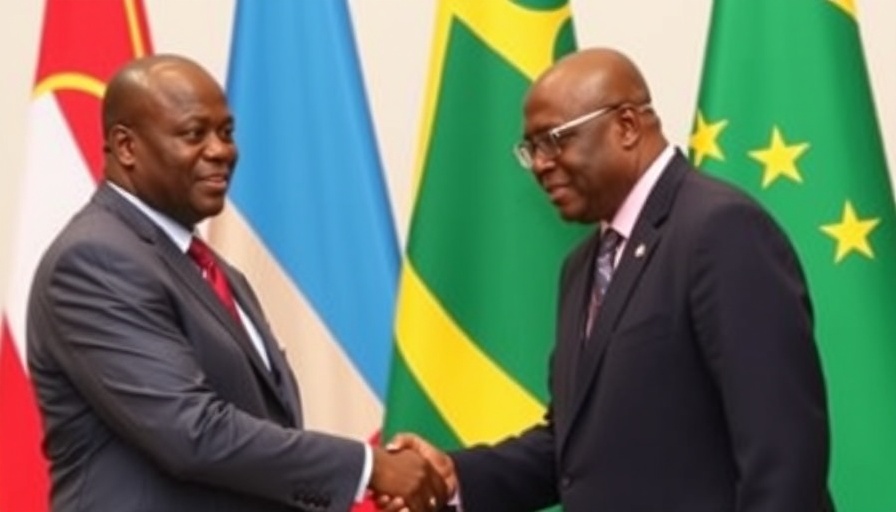
A New Diplomatic Approach to the Congo Crisis
As leaders within the East African Community (EAC) and the Southern African Development Community (SADC) prepare for yet another summit on the escalating crisis in the Democratic Republic of Congo (DRC), the urgency for pragmatic solutions has never been more palpable. Set to take place from Sunday to Monday in Harare, Zimbabwe, this meeting marks the second attempt within a month to address the ongoing violence and political discord fueled by the M23 rebel group.
Both regional blocs are grappling with the limits of military interventions, having seen their previous efforts result in significant casualties and domestic backlash. The SADC's withdrawal of its military mission signals a pivot away from armed conflict towards diplomacy. This latest shift comes after the EAC’s peacekeeping force, established last December, also met with disappointing outcomes.
Political Solutions: Seeking Sustainable Peace
Speaking ahead of the summit, Kenyan Prime Cabinet Secretary Musalia Mudavadi confirmed the primary focus: moving towards a political resolution. The SADC's recent summit also reflects this strategic pivot, emphasizing diplomatic channels over military confrontations. Engaging in dialogue with the M23 poses challenges, yet the Angolan leadership under President Joao Lourenco has stepped in to facilitate direct talks in Luanda, starting March 18.
Implications for Regional Stability and Economic Interests
The increasing instability in the DRC not only threatens humanitarian conditions but also risks impacting regional economic partnerships vital for Africa’s growth. Business leaders and investors are acutely aware that prolonged conflict can undermine initiatives to enhance trade relationships, particularly as calls for enhanced stability through peace talks gather momentum. The diplomatic outcomes from these meetings could pave the way for a rejuvenated economic landscape in the Great Lakes region, fostering a more favorable environment for investment.
A Broader Context: International Stakeholders and Aid
International players are equally invested in this diplomatic effort. The implications of a peaceful resolution in Congo extend beyond borders, impacting relationships with global powers like China and the EU, especially in terms of trade agreements and foreign investments. The nuanced dynamics between regional stability and international interests highlight the interconnectedness of political events and economic aspirations across Africa.
Moving forward, the outcomes of the upcoming EAC-SADC meetings will be pivotal in determining whether these growing tensions will diminish or escalate further. The potential for collaborative solutions that satisfy both regional ambitions and international expectations remains a critical area for oversight and engagement.
Final Thoughts
In summary, the meetings set for this weekend not only represent an opportunity for regional collaboration but also a crucial juncture for Africa’s geopolitical landscape. Stakeholders from various sectors must consider how they can contribute to sustainable peace and an integrated economy within a stabilizing framework.
For those keen on understanding the intricacies of Africa’s geopolitical dynamics, remaining informed on these developments is critical. As diplomatic discussions unfold, the ripple effects on trade, investment, and international relations will shape not just the future of the DRC but the broader African landscape.
 Add Row
Add Row  Add
Add 


Write A Comment